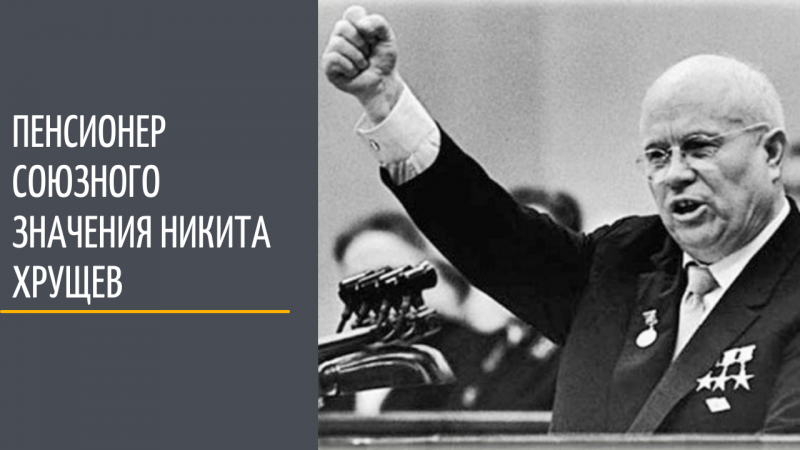
After his overthrow, and that is exactly what he called the situation on October 14, 1964, Nikita Khrushchev stated that he did not allow bloodshed in the country, as the father of nations Joseph Stalin would have done. The last years of his life, the former omnipotent leader of one of the two nuclear powers of that time, spent in the countryside, surrounded by his wife, children and grandchildren. He gardened and went fishing. This inconspicuous old man, who very often went fishing with his grandchildren, could hardly be recognized as the first secretary of the CPSU Central Committee, the most formidable castigator of capitalism, banging his boot on the rostrum of the UN General Assembly and promising to bury the whole Western world. On October 14, 1964, he was removed from all high posts and dismissed. Thus, a different life began for Nikita Sergeyevich. A life full of concerns of an ordinary citizen. As a pensioner, albeit of nationwide significance, and as all ordinary people of his age, he reminisced the past and was preparing to have it published. Nikita Sergeevich recorded his memories on the recorder. And there was a lot of things to tell about. Revolution, collectivization, industrialization, mass Stalinist repressions, World War II, the debunking of the Stalin personality cult, the thaw, the development of virgin lands, the first manned flight into space. In each of these events, our hero was the most direct participant, and in others may be even its main protagonist.
THE BEGINNING OF THE PATH
The future leader of the Country of Soviets was born in 1894 in the Kursk province in a simple mining family. First education he received at a parochial school, from a young age he worked as a shepherd. Under the previous regime, one could say this would have ended his career growth, but the October Revolution in 1917, as it is customary to say in stories about the biographies of Soviet leaders, changed everything. The very next year he joined the Bolshevik party and joined the Civil War on the side of the Reds. After the establishment of Soviet power, the party career of Nikita Khrushchev began. In 1925, he met his future wife - Nina Kukharchuk. In the late twenties he entered the party academy, and by the mid-thirties he already held high positions in the leadership of the Moscow city committee and regional party committee. We can say that it was from this time that he entered the very inner circle of Joseph Stalin. This period, like the years of work in Ukraine, is quite controversial and causes a lot of controversy among historians. The fact is that in 1937 he became part of the so-called “NKVD troika”, which passed death sentences on enemies of the people. However, in the archives, Nikita Sergeyevich’s signatures under the death lists have not yet been found. Some argue that they didn't even exist, others that he gave the order to thoroughly clean the archives while serving as the head of state. And we hardly would know about his role in mass repressions.
In 1938, he headed the Central Committee of the Communist Party of Ukraine. He spent the whole war as the first leader of Ukraine. And in this post, he proved himself to be an ardent fighter with "enemies of the people." In 1949 he was returned to Moscow. In the same positions as before - the leadership of the Moscow city committee and regional committee, as well as the position of secretary of the CPSU Central Committee. Once again, Nikita Sergeyevich was among those close to the leader. In late 1952 - early 1953, around Stalin a real undercover war was fought for the main post in the country. The father of nations was already old and sick, and his associates understand that the key moment is coming, who is whom. March 5, 1953, Stalin dies, and immediately Khrushchev and Beria take the initiative in their hands. Khrushchev is responsible for the work of the Central Committee of the party. Later, he will get rid of his rivals - Malenkov and Beria. The first will be sent to Kazakhstan, but not to prison, only to lead the thermal power station, and the second will be shot as a foreign spy. In the same year, at the end of March, thousands of illegally convicted “enemies of the people” began to return from the camps.
KHRUSHCHEV AT THE HEAD OF THE PARTY AND THE STATE
On September 7, 1953, he officially headed the CPSU Central Committee. From prisons and camps, 1 million 120 thousand people returned home. In 1956, at the Twentieth Party Congress, something happened that no one - neither the country, nor the world expected. The cult of personality of Stalin was not only debunked, but he was also condemned. At that moment not only the politics of the country was determined by Nikita Khrushchev. He took control over the solution of numerous problems in the economy, industry, and agriculture. Thus, the pressure on the peasantry was significantly weakened, the tax policy with respect to farmers was substantially revised, and, importantly, the state increased the purchase and procurement prices for the products of the villagers. The peasantry has been taxed in previous years, and public investment has been significantly increased in the agricultural sector. And first of all it concerned Kazakhstan and the republics of Central Asia. Only for five years, from 1953 to 1958, the volume of capital investments in this area increased by 9 times. But even these measures could not feed the inhabitants of one sixth of the world.
By the beginning of the fifties, the population of the USSR had increased by almost twenty million people. Of course, it would be possible to solve the food problem by switching to market principles of the economy, but naturally, the authorities, no matter what a reformer Khrushchev was, did not agree to this. It was decided to increase the sown area in Kazakhstan and in some areas of the Urals. In November 1953, a virgin lands development plan was adopted. Within two years: from 1954 to 1956, the sown area in the republic increased to almost 2.5 million hectares. Kazakhstan became one of the grain granaries of the USSR and became one of the so-called "grain belt" of the planet. And then more. The authorities set out to plow Kazakhstan’s fields not in 4 years, but in a year. However, the head of the republic, the first secretary of the Central Committee of the Kazakh SSR, Zhumabay Shayakhmetov, opposed this. Those methods with which virgin lands were developed could lead to real environmental disasters. Soil erosion began, and by 1960 the republic had lost almost 9 million tons of humus. And the situation only worsened every year.
KAZAKHSTAN COULD HAVE LOST A NUMBER OF REGIONS BY THE WILL OF KHRUSHCHEV
For Kazakhstan, Khrushchev’s time was marked not only by the development of virgin lands, but also by a revision of the borders of the republic without taking into account both its leadership and population. However, this also affected Russia when, by the decision of one person, the Crimea peninsula was transferred to Ukraine. Nikita Khrushchev decided that the USSR is a single country, and which republic to transfer which territory is to be decided in Moscow. Thus, in the capital it was decided that Kazakhstan should transfer a number of regions of the south of the republic to neighboring Uzbekistan, and the virgin northern territories - to Russia. This territorial issue was actually resolved. It was supported not only in Moscow, but also in the regions of Kazakhstan. In particular, the first secretary of the Chimkent regional party committee A. Yusupov. On January 26, 1963, the Presidium of the Supreme Council of the Kazakh SSR decided: “to transfer to the Uzbek SSR the Kirov and Pakhta-Aral regions, the Kzylkum and Chimkuran village councils of the Kzylkum district of the Chimkent region with a total land area of 956 thousand hectares, as well as 1,554 thousand hectares of pasture land Chimkent region and 1,159 thousand hectares of the Kzyl-Orda region, which are in long-term rental use of the Uzbek SSR.” Kazakhstan could have lost part of its territory not only in the south, but also in the north. The fact is that in the early 60s, on the initiative of Khrushchev, the Tselinny Territory was formed, which included Akmola, Kokshetau, North Kazakhstan, Kostanai and Pavlodar regions. The capital of the land of grain growers was Tselinograd, the current city of Nur-Sultan. So, Nikita Sergeyevich got the idea to transfer the newly formed region to the RSFR. As with the southern regions, the case was virtually resolved with the Virgin Land. But suddenly, one person spoke sharply against the ideas of the party leadership - Zhumabek Tashenov, Chairman of the Council of Ministers of the Kazakh SSR. At one of the decisive meetings, Zhumabek Akhmetovich explained that such a decision is unacceptable, this contradicts the Constitution of the USSR. Khrushchev said the final decision would be made later. The decision was made, but with respect to Nikita Sergeyevich himself. On October 14, 1964, he was removed from the post of First Secretary of the CPSU CC and the head of the Soviet government. Today, the history of the ten-year reign of Nikita Khrushchev is mixed. Yes, much was done for the common people, people lost the fear of being convicted without guilt, they solved the food problem, the Soviet Union became one of the main powers in the world, but there was another thing - not always well thought-out decisions. Not to mention the Caribbean crisis and the arms race, there were ambiguous decisions inside the country, such as planting corn wherever possible, without taking into account our realities, or a hasty decision to develop virgin lands, revising the borders of national republics. It seems that the answer to this question - what it was like, the Khrushchev decade for our country - has yet to be given.






































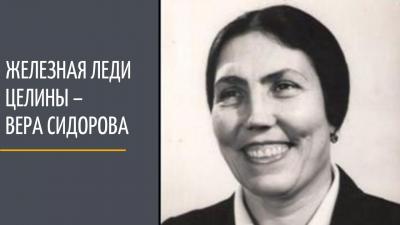
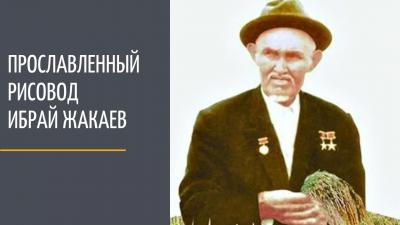
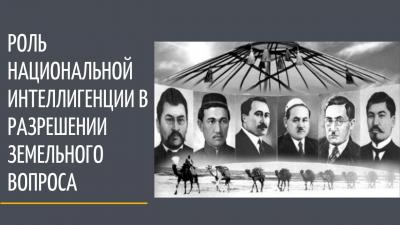
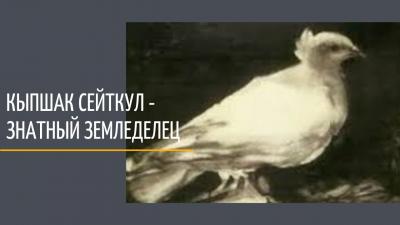
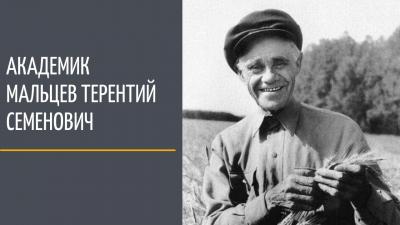

Обсуждение